#Pinter films
Text
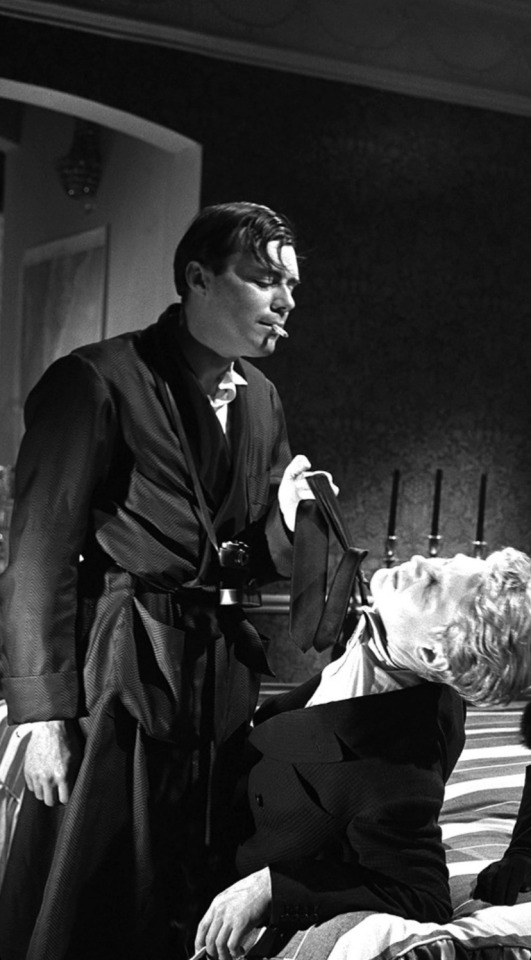
Dirk Bogarde and James Fox in The Servant (1963)
647 notes
·
View notes
Text

Harold Pinter, October 10, 1930 - December 24, 2008.
With William Friedkin on the set of The Birthday Party (1968).
21 notes
·
View notes
Text
"Kolleksjonen" (1963) - Pål Løkkeberg
(Orig. title: "The Collection")
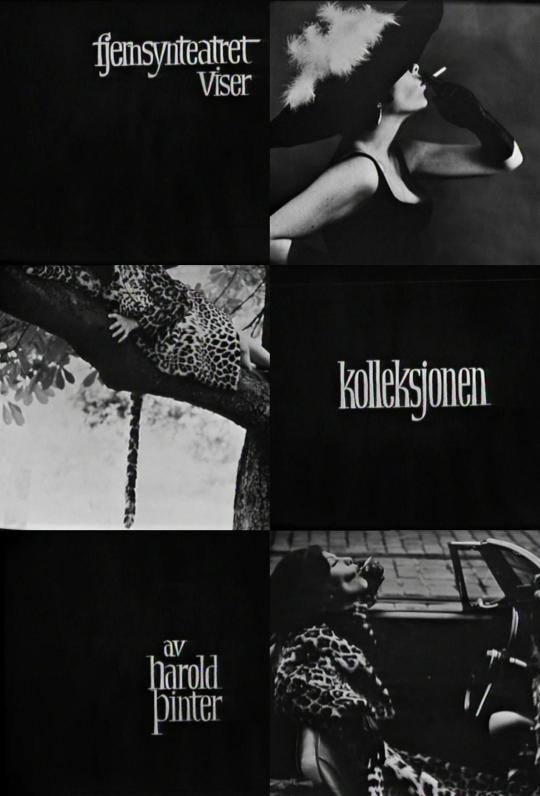

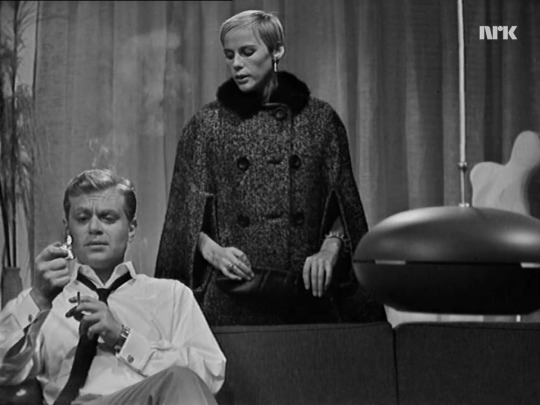


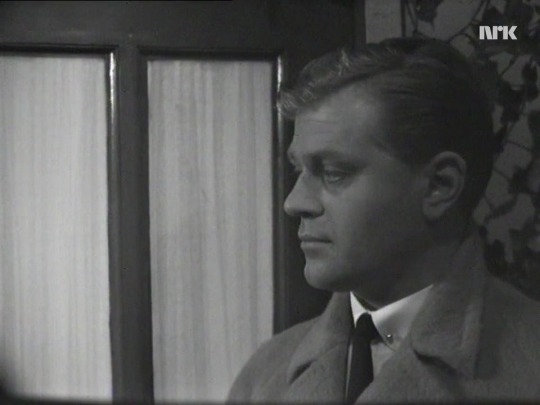
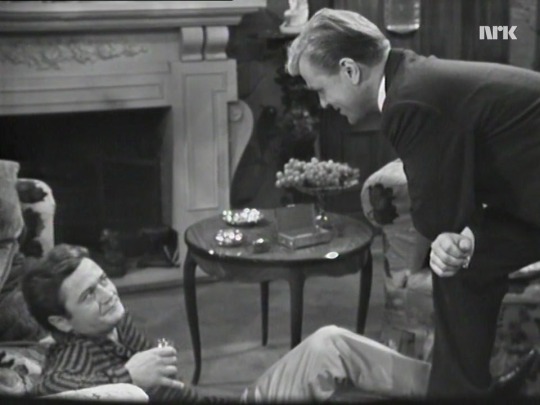
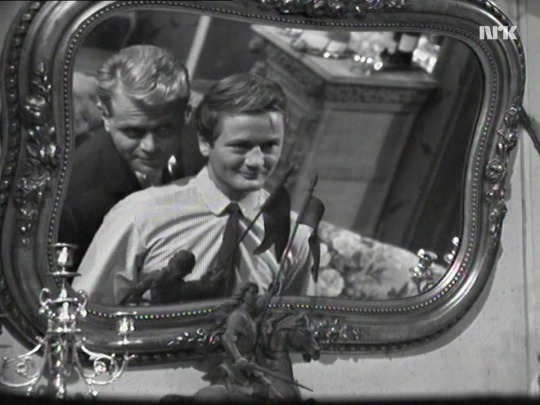
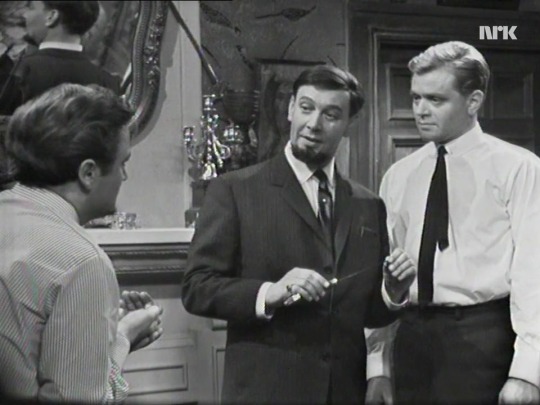
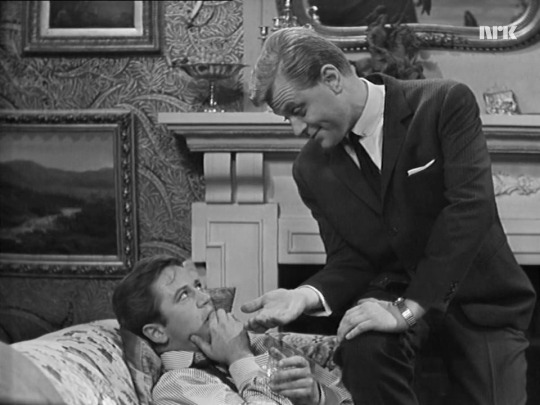
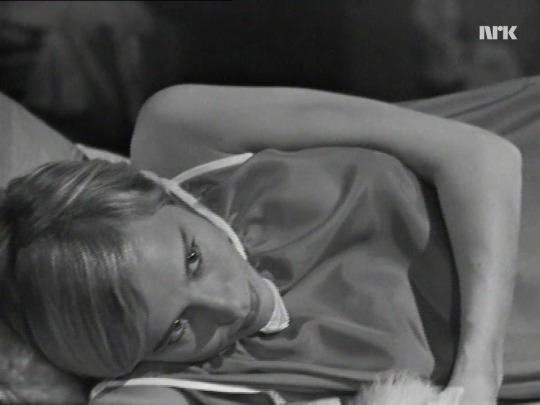
Films I've watched in 2023 (102/119)
#films watched in 2023#Kolleksjonen#Arne Lie#Tor Stokke#Henny Moan#Tom Tellefsen#Pål Løkkeberg#Harold Pinter#queer play#lgbtq#lgbtq play#motionpicturelover's screencaps#FT
2 notes
·
View notes
Text
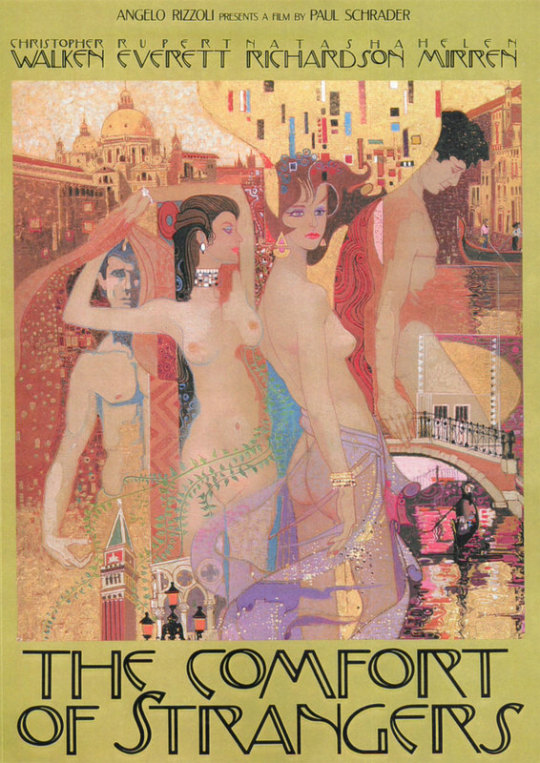
Wir sollten jetzt, wo wir uns dieses Venedig so richtig vorstellen können, auch ein paar Venedig-Filme anschauen, dachten wir und machten uns gleich daran, mit The Comfort of Strangers, einer wüsten und etwas rätselhaften Geschichte von Ewan McEwan und Drehbuch von Harold Pinter. Man könnte ahnen, daß es trotz der zauberhaften Kulisse nicht nett wird. Natasha Richardson und Rupert Everett machen dort als hübsches, aber unsicheres Paar Beziehungssortierungs-Urlaub, Rupert sieht aber einfach zu gut aus und erregt die Aufmerksamkeit der zweifelhaften und anstrengenden Eheleute Walken und Mirren. Bizarre Filme über sinnliche Obsessionen mit Helen Mirren kann man gar nicht genug anschauen.
#The Comfort of Strangers#Christopher Walken#Rupert Everett#Natasha Richardson#Helen Mirren#Film gesehen#Paul Schrader#Harold Pinter#Ian McEwan
2 notes
·
View notes
Text

Summer Sky
Photo by: Robson Araujo
#film photography#ftwotw#nikonphotography#pinterest#artists on tumblr#art#nikon#artists tumblr#photographers on tumblr#instagram inspiration#instagood#instadaily#instagram#skyporn#skyfire#summer#sunset#sunday#beachlover#pinter at the pinter#purplesky
14 notes
·
View notes
Text
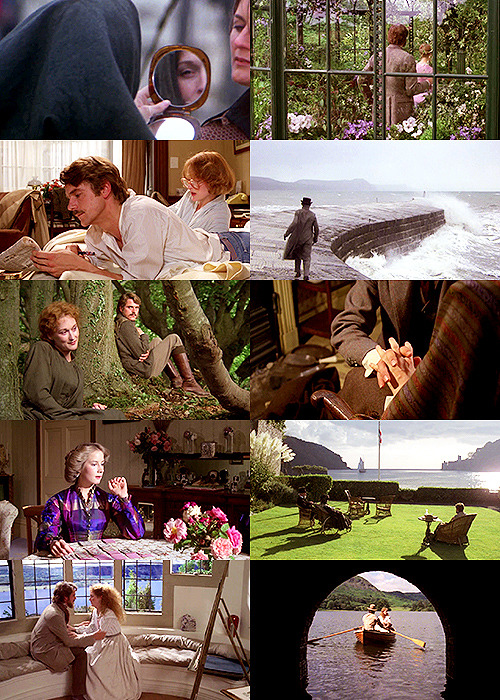
The French Lieutenant's Woman (1981). Anna and Mike portray two characters in a film set in 19th century England who fall in love despite the fact that Mike's character is engaged.
I've got such a soft spot for movies that get meta, and this one about two actors who have an affair as their characters do on the set of a film is pretty sumptuous. Jeremy Irons is at his best in the lead, while Meryl is always a joy, even if I do agree with her saying it's one of her weaker performances, particularly from this era. It's an interesting romance, even if it does occassionally stretch its own premise and get a little dull. 7/10.
#the french lieutenant's woman#1981#Oscars 54#Nom: Actress#Nom: Adapted Screenplay#Nom: Costume#Nom: Art Direction#Nom: Editing#karel reisz#john fowles#harold pinter#maryl streep#jeremy irons#hilton mcrae#meta#film#england#english#romance#period#7/10
8 notes
·
View notes
Text
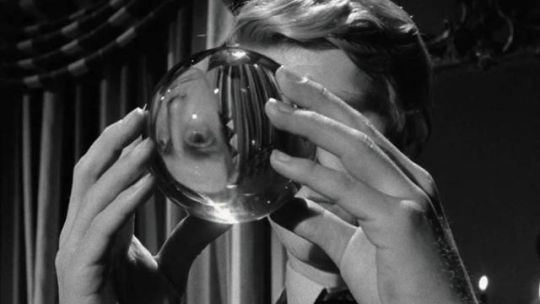
Flick Review < The Servant | Joseph Losey (1963) >
“It’s very difficult to feel contempt for others when you see yourself in the mirror.”
Harold Pinter
4 notes
·
View notes
Text
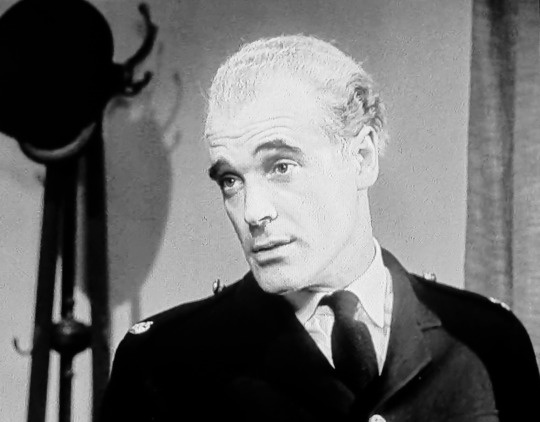
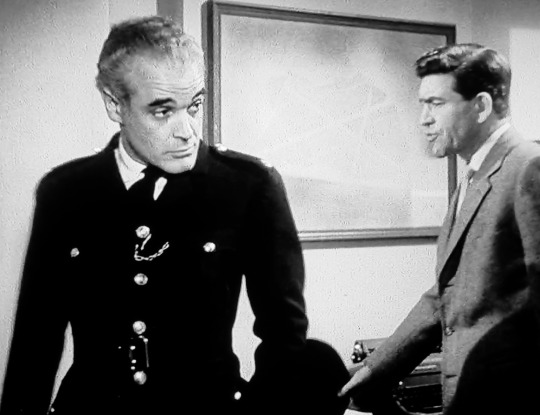
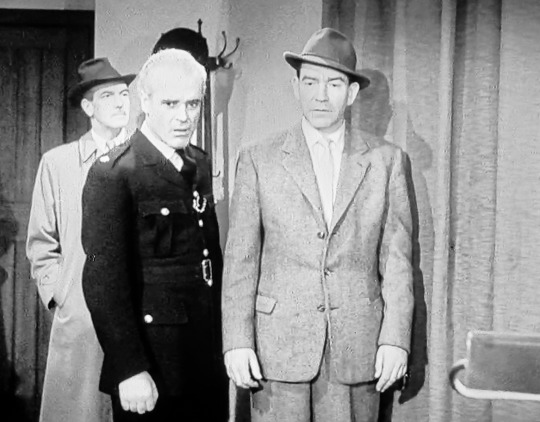
Patrick Magee works to apprehend the villains as Parsons, the head of airport security in Dial 999: The Great Gold Robbery (1.4, ABC, 1958)
#patrick magee#fave spotting#dial 999#the great gold robbery#1958#classic tv#abc#ok my fave spottings may be wandering away from stars of old brit tv who i know mutuals will get a kick from#but Pat has long been a favourite of mine#this was first ever screen credit (he'd had an uncredited appearance as a police officer in 1956 film The Green Man) but he was already an#experienced stage actor‚ had worked with Harold Pinter and Samuel Beckett‚ and was beginning to be noticed for his work on stage and#radio (that incredible voice would serve him well throughout his career; a few months after this aired he'd be performing in the original#production of Krapp's Last Tape‚ written specifically for him by Beckett because of his voice)#he doesn't have much to do here except provide a little exposition and help to round up the baddies but it's fun to see him so#comparatively young and energetic. the airport in question is presumably Heathrow; it isn't stated in dialogue (and Heathrow was just#London Airport until 1966) but as Gatwick had only just opened when this aired‚ and as it is clearly set in London's inner city‚ it seems#the logical candidate. this ep has good horror pedigree‚ with Magee guesting and being directed by Hammer's Terence Fisher#Fisher made 8 episodes of Dial 999‚ his last work for television (the huge commercial success of the same year's Dracula would#keep him in cinemas for the rest of his life). this episode is also the second in a row (on network's weirdly ordered set anyway; there#this is something like ep 8 or 9 not 4) to feature an uncredited Edwin Apps as a forensic technician who appears to specialise entirely in#hats. like his whole part in both episodes is to examine a hat and provide enough clues to solve the case#hat squad!#that should have been a spin off
6 notes
·
View notes
Quote
29 December
7.45pm Edna O’Brien. In four hours or so, Edna tells us tale after tale of Beckett, Pinter – “When I see him on Monday he will say immediately: ‘You have seen The Caretaker, of course’ – ‘No, I have been away’ – ‘Well, then you have seen Betrayal.’ The trouble is writers write from pain and Harold has closed up all his wounds, so all he can write now are these small things.”
Alan Rickman’s secret showbiz diaries
3 notes
·
View notes
Text
WORTH A LOOK?: *****
WHEN?: Saturday 24 February, opens 6 March and runs through 11 May 2024 RUNTIME: 160 minutes (including a 20-minute interval)
A grieving son wraps his dying miner father in his arms, apologises for everything he could have done better to look after him and vows to make good by helping others.
The son is Aneurin ‘Nye’ Bevan, the Labour politician and founder of the National Health Service on 5 July 1945, and Nye is the warts-and-all story of the man who would improve the health of countless millions of us and how he did it.
Nye died almost 15 years to the day he founded the NHS from stomach cancer and the conceit here is that he’s in hospital at the end of his life having a fever dream and wanders, pink pyjama-clad, through moments of importance.
Reading the article by former Labour leader Neil Kinnock in the programme about Bevan we discover his education was cut short at 13 when he followed his miner father down the pits to work in 1910.
In an almost reverse of film Dead Poets Society we meet the bullying schoolteacher who would cane a young Nye because of his speech impediment, the classmates who would protect him and the very Manic Street Preachers-like realisation that free libraries could give him the power to overcome his stammer by finding alternative words to those he could not utter.
Riffing on Dennis Potter’s Singing Detective Sheen’s Nye even sings Judy Garland’s Get Happy at 1 point as he and his miner colleagues use the time unemployment has afforded them to bone up on the way their home town of Tredegar in Wales is run and get themselves elected onto the boards of the bodies involved to finally do good by its people.
From our 4th row seats we see director Rufus Norris, also outgoing artistic director and chief executive of the National Theatre, tread the boards at the beginning of this 1st preview to remind us as such there might have to be a pause in proceedings because of the freshness of the material but perhaps 1 of the reasons its star Sheen is beaming so much during the curtain call (see picture below) is because it all actually went so well.
The action is staged as if in a hospital ward for much of the time with beds on wheels used to great effect and curtains around beds featuring prominently and at 1 point, rather brilliantly, lowering to become rows of seats in Parliament.
Tony Jayawardena (Marjorie Prime, Menier) is quite brilliant as Nye’s nemesis Winston Churchill, a man who succeeds in doing what Labour were unable to by uniting all classes in opposition to world war.
Sharon Small (Good, Harold Pinter Theatre) is more than a match for a revelatory performance by Sheen, at 1 point seemingly channelling the boyish enthusiasm of a young Declan Donnelly from Ant and Dec, as she explains the sacrifices she made to support her husband.
There’s a lot of injustice to make the audience angry here and there’s some terrific political theatre in London at the moment to both challenge the mind and make the heart soar – An Enemy Of The People and Standing At The Sky’s Edge for example.
Like the outstanding Dear England, this is an example of a venue at the top of its game doing exactly what it should be doing in offering insight into stories of those who have shaped our country and influenced the people we have become.
---------
Another one who sang "Get Happy":
youtube
63 notes
·
View notes
Text
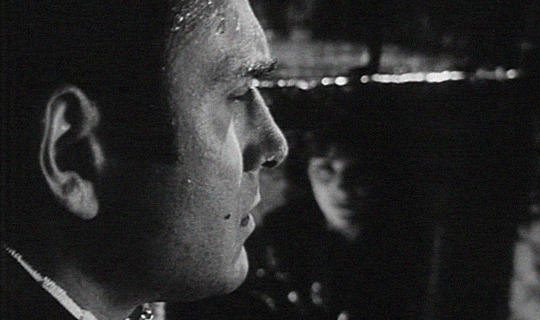


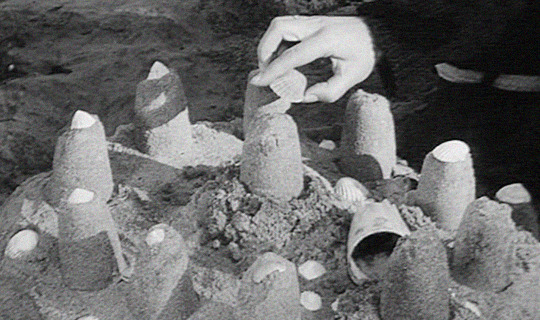
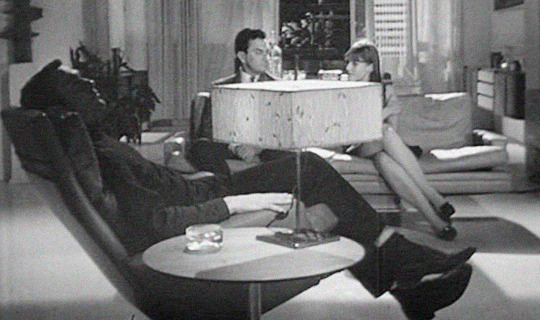
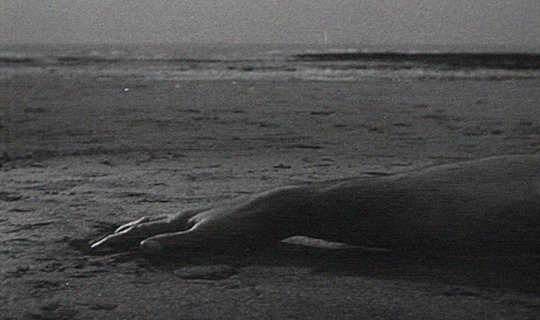
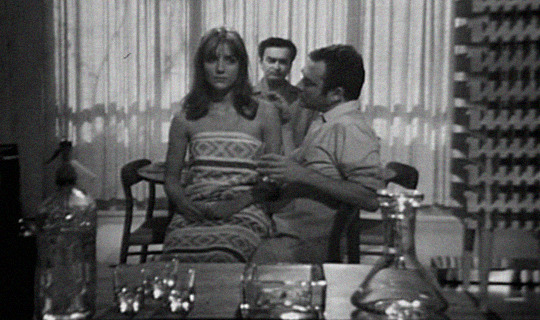


THE BASEMENT (1967)
by Harold Pinter
5 notes
·
View notes
Text
Zawe Ashton Covers AMAZING Magazine | Issue 4

Actor, author, playwright and new mum Zawe Ashton adds another string to her bow: supervillain. As she joins the Marvel Cinematic Universe, she tells AMAZING about her love of poetry, getting physical on the set of The Marvels and the unwavering support of her own parents.
Zawe Ashton is no stranger to playing the antagonist. From her very first film role as rude schoolgirl Bianca in 2009’s St Trinian's 2: The Legend Of Fritton's Gold, to playing the intimidatingly cool Violet “Vod” Nordstrom in four seasons of student sitcom Fresh Meat and – more recently - as the rejected Julia Thistlewaite in 2022 period drama, Mr. Malcolm’s List, Ashton has a knack for taking on characters who appear unlikeable on paper… and making audiences fall in love with them. However, for her latest role as Dar-Benn in The Marvels, she had to go full villain.
“Very little can prepare you to have to embody an antagonist at this level, in a Universe that is literally not known to anyone – like our Space - and to make it real and impactful,” says the London-born actor, a new recruit to the Marvel Cinematic Universe. “There's something deeply humbling about having to return to the sandbox; you have to go back to the playground and that was something I was not expecting. You have to indulge in adult play and it’s surprisingly vulnerable. I know that there are gamers out there, there are cosplayers out there, there are adults who have managed to keep that level of childlike play going and I respect it so much. There's a self-consciousness that can take over if you are not careful. Trying to react realistically to a laser coming towards you is not something I’d done since I was seven years old, and I had to get to that level of childlike confidence to just delve into the imagination. Once that was all clearer, the villainous elements came so much from the physical world, with costume and hair.”
For 39-year-old Ashton, adult play will likely become a more frequent fixture in her life, thanks to her most exciting new role – as a mother. She welcomed her first child in 2022 with fiancé Tom Hiddleston, her co-star in the 2019 revival of Harold Pinter's Betrayal on London’s West End, later transferred to Broadway. “What has genuinely surprised me about motherhood is how much I don't feel ready to talk about it,” she laughs. “And this isn’t to shut down the conversation. I have gained so much insight from public people who have this incredible candour and this disarming, relatable dialogue about it very early on, but it's something that I am just dedicating time to absorbing. I’m listening rather than expelling energy. That genuinely has surprised me, because it's something you want to shout from the rooftops about; it's the most unparalleled, most important role in my life. The surprise has been how quiet I want to be about it. Maybe that's also me as a writer and this is something that will come through the pen at some point.”
Ashton attended London’s Anna Scher Theatre School from the age of six and was a member of the National Youth Theatre, before getting her degree in acting at Manchester Metropolitan University, but writing has always been significant in her life. She won the London Poetry Slam Championship in 2000, becoming the event’s youngest winner, at 17. “I may have been knocked off that pillar long ago, but in my head I'm still the youngest,” she laughs. “I love poetry. I had not written for a really long time; during the pandemic I lost a huge chunk of my creative soul when it came to putting pen to paper, which was really scary and was clearly the fallout of being in survival mode and feeling quite fearful. People's attention spans just went all sorts of different ways, didn't they? It was very hard for me to read, and it was very hard for me to write, which is very strange for me.
“More recently, a friend of mine from drama school who I used to do open mic nights with in Manchester – I used to perform poetry and she used to sing - asked me to write a poem for her wedding. I had a few moments where it was really tough, but I did it. I love her and I'm so happy for her, and being inspired enough to get a poem out and read it aloud really opened the floodgates. So, weirdly enough, I've been writing a lot of poetry recently and found a new love for it. I will always continue to use poetry as a way to understand the world. It's just so much part of who I am.”
For Zawe's full interview and shoot, order your copy of AMAZING issue 4 now. The Marvels is out now.
71 notes
·
View notes
Text
"The Caretaker" (1963) - Clive Donner
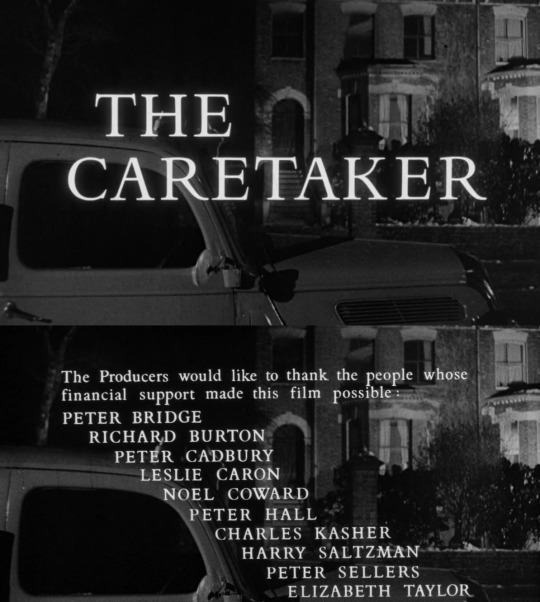
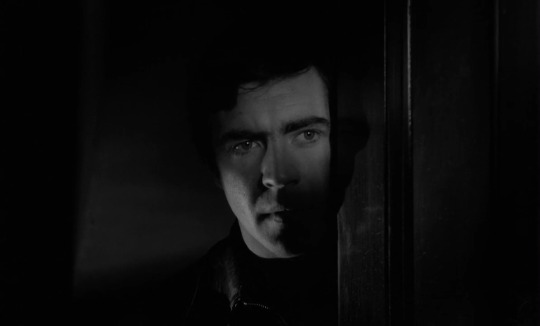
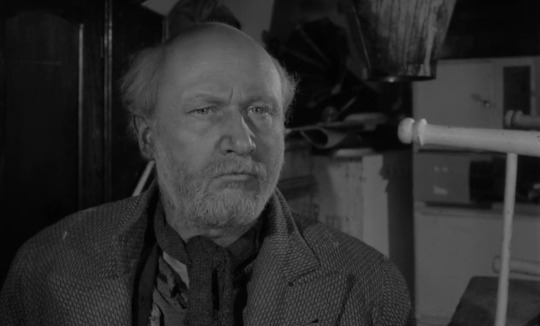
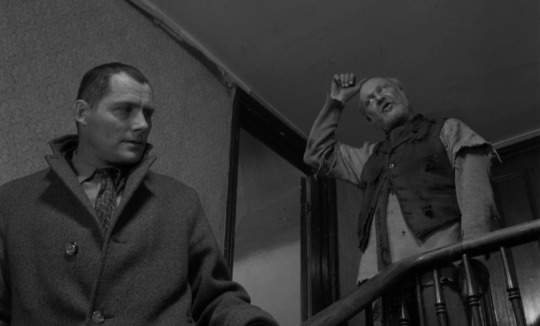
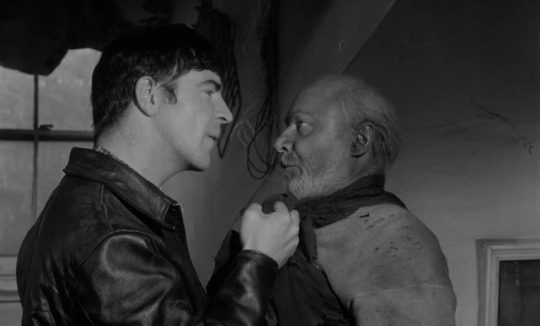
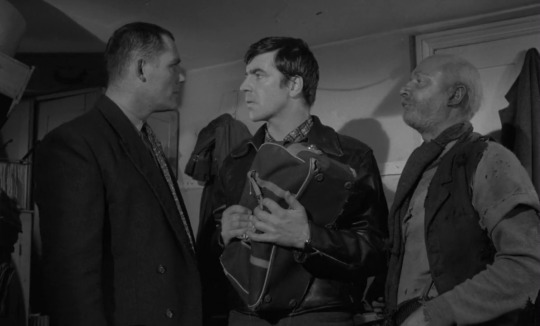
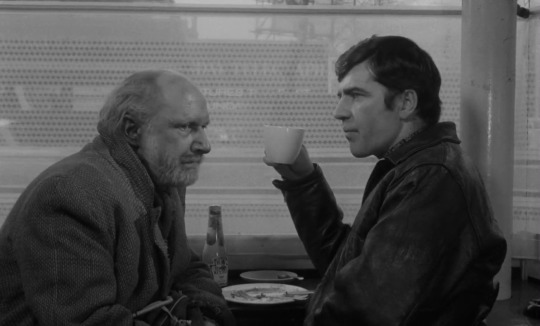
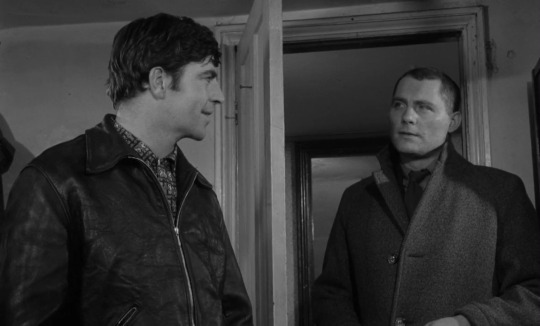
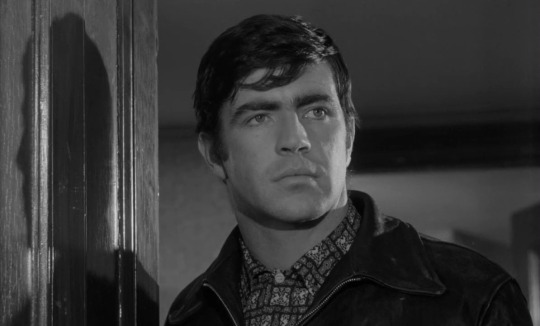
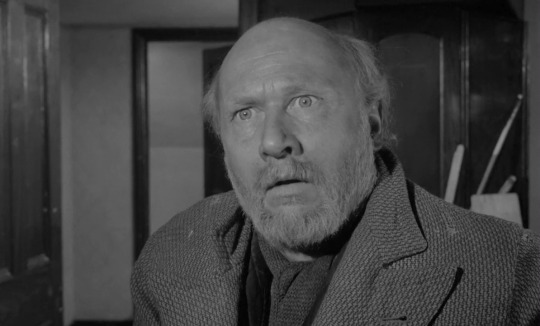
Films I've watched in 2022 (209/?)
Full film in HD:
youtube
#films watched in 2022#The Caretaker#Alan Bates#Donald Pleasence#Robert Shaw#Clive Donner#Harold Pinter#motionpicturelover's screencaps#motionpicturelover's picture compilations
15 notes
·
View notes
Note
https://www.tumblr.com/eldritch-spouse/727664659654656000/i-believe-gallon-will-be-a-great-big-brother?source=share
you come home to your human slime hybrid child and they're making fucking martinis in the kitchen
You come home from a long day's work to Pinter sitting in a comically small pink chair with your baby girl and all her stuffed friends, apparently playing tea party together.
It's wholesome enough that you stay by the doorway, filming it quietly with a warm smile on your face.
" It's a little flat, princess. " Pinter comments after a sip.
" Oh. " She deflates, literally, form sinking onto the chair.
Her father checks his watch, texts something, before putting his phone down and taking another long sip. " Pretty good though. I can barely tell it's spiked. "
She gasps, kicking her legs happily. " Really?! "
" Yep. Your brother is teaching you well. " The older slime pets her green bubbly hair. " Now remember, what's our rule? "
" Mommy can't have the special drinks. Never ever ever! " Your child parrots with great focus.
" Good girl. "
What the fuck.
94 notes
·
View notes
Text

The word “great” is somewhat promiscuously applied to actors. But it was undoubtedly deserved by Sir Michael Gambon, who has died aged 82 after suffering from pneumonia.
He had weight, presence, authority, vocal power and a chameleon-like ability to reinvent himself from one role to another. He was a natural for heavyweight classic roles such as Lear and Othello. But what was truly remarkable was Gambon’s interpretative skill in the work of the best contemporary dramatists, including Harold Pinter, Alan Ayckbourn, David Hare, Caryl Churchill and Simon Gray.
Although he was a fine TV and film actor – and forever identified in the popular imagination with Professor Albus Dumbledore in the Harry Potter franchise – the stage was his natural territory. It is also no accident that, in his private life, Gambon was an expert on, and assiduous collector of, machine tools and firearms for, as Peter Hall once said: “Fate gave him genius but he uses it as a craftsman.”
Off-stage, he was also a larger-than-life figure and a superb raconteur: a kind of green-room Falstaff. I have fond memories of an evening in a Turin restaurant in March 2006 on the eve of Pinter’s acceptance of the European Theatre prize. Gambon kept the table in a constant roar, not least with his oft-told tale of auditioning for Laurence Olivier as a young actor in 1963 and cheekily choosing to do a speech from Richard III; but the next night Gambon gave an explosive rendering of Pinter’s poem American Football that threatened to blow the roof off the Turin theatre.
However, Gambon’s bravura was also mixed with a certain modesty. In the summer of 2008 I met him for tea in London and found him eagerly studying the script of Pinter’s No Man’s Land, in which he was scheduled, several months later, to play Hirst. He told me that he had started work on it so soon because he found it difficult to learn lines at his age.
“Sometimes,” he said, “I sleep with a script under my pillow, or just carry it around in my raincoat pocket, in the hope the lines will rub off on me.” I think he was genuine; but with Gambon, one of life’s great leg-pullers, you were never entirely sure.
Gambon achieved greatness without either the formal training or genetic inheritance that are often considered indispensable.
He was born into a working-class Dublin family that had no artistic background; his mother, Mary (nee Hoare), was a seamstress, and his father, Edward, an engineer. When the family settled in Britain after the second world war, the young Gambon went to St Aloysius school for boys, in Somers Town, central London. On leaving at the age of 15 he signed a five-year apprenticeship with Vickers-Armstrongs, leading to a job as a tool-and-die maker. With his mechanical aptitude, he loved the work. But he also discovered a passion for amateur theatre and, having started by building sets, eventually moved into performing. “I want varoom!” he once said. “I thought, Jesus, this is for me.”
With typical chutzpah, he wrote to the Gate theatre in Dublin, creating a fantasy list of roles that he had played in London, including Marchbanks in Shaw’s Candida; in the end, he made his professional debut there in 1962 as the Second Gentleman in Othello. His best decision, however, on returning to London, was to sign up for an improvisational acting class run by William Gaskill at the Royal Court.
Gaskill was about to join the newly formed National Theatre company at the Old Vic and recommended Gambon for an audition: hence the celebrated story of Gambon’s first encounter with Olivier, which ended with the young actor, in his excess of zeal, banging his hand on a nail in an upstage column and bleeding profusely. Far from being the nail in Gambon’s coffin, this led to a productive four years with the National in which he progressed from walk-ons to substantial roles such as that of Swiss Cheese in Gaskill’s revival of Mother Courage.
On Olivier’s advice, however, Gambon left the National in 1967 to hone and pursue his craft at Birmingham rep – a shrewd move that saw him, at the astonishingly early age of 27, playing his first Othello. He moved on later to the Royal Shakespeare Company, and in 1968 made his first foray into television with the leading role in a BBC adventure series called The Borderers.
However, it was through working on another TV series, The Challengers, that he made a contact that was to transform his career. His fellow actor Eric Thompson was moving into directing, and in 1975 was set to do an Ayckbourn trilogy, The Norman Conquests, at the Greenwich theatre. He cast Gambon, against type, as a dithering vet.
He revealed, for the first time, his shape-shifting gifts; and the sight of him, seated at a dinner table on a preposterously low stool with his head barely visible above the table’s edge, remains one of the great comic images of modern theatre.
This led to a highly productive working relationship with Ayckbourn including key roles in Just Between Ourselves (Queen’s theatre, London, 1977) and Sisterly Feelings (National, 1980).
At the same time, Gambon began an association with Gray by taking over, from Alan Bates, the role of the emotionally detached hero in Otherwise Engaged (Queen’s theatre, 1976).
That was directed by Pinter, for whom in 1978 Gambon created the part of Jerry in Betrayal at the National. It was a production beset by problems, including a strike that threatened to kibosh the first night, but Gambon’s mixture of physical power and emotional delicacy marked him out as a natural Pinter actor. That power, however, manifested itself in the 1980s in a series of performances that staked out Gambon’s claim to greatness.
First, in 1980, came Brecht’s Galileo at the National: a superbly triumphant performance that brought out the toughness, obduracy and ravening intellectual curiosity of Brecht’s hero. It was a measure of his breakthrough that, as Gambon returned to his dressing room after the first night, he found the other actors in the National’s internal courtyard were shouting and roaring their approval. Two years later, Gambon returned to the RSC to play both a monumental King Lear and a ravaged Antony opposite Helen Mirren’s Cleopatra.
But arguably the finest of all of Gambon’s 80s performances was his Eddie Carbone in Arthur Miller’s A View from the Bridge, directed by Ayckbourn at the National (1987). It helped that Gambon actually looked like Miller’s longshoreman-hero: big and barrel-chested with muscular forearms, he was plausibly a man who could work the Brooklyn docks.
Gambon also charted Eddie’s complex inner life through precise physical actions. He stabbed a table angrily with a fork on learning that his niece had got a job, let his eyes roam restlessly over a paper as the niece and the immigrant Rodolpho quietly spooned, and buckled visibly at the knees on realising that a fatal phone-call to the authorities had ensnared two other immigrants. In its power and melancholy, this towering performance justified the sobriquet once applied by Ralph Richardson of “the great Gambon”.
When you consider that the decade also saw Gambon playing the psoriasis-ravaged hero of Dennis Potter’s TV series The Singing Detective (1986), you realise his virtuosity and range.
And that became even clearer in 1990 when he played the mild-mannered hero of Ayckbourn’s Man of the Moment (Globe theatre, now Gielgud, London), had another crack at Othello for Ayckbourn in Scarborough and appeared, in 1989, as a romantically fixated espionage agent in Pinter’s TV adaptation of Elizabeth Bowen’s The Heat of the Day: that last performance, alternately sinister and shy, was one of Gambon’s finest for television and deserved a far wider showing.
In later years Gambon successfully balanced his stage career with an amazingly prolific one in film and television. In Hare’s Skylight at the National in 1995 he combined the bulk and weight of a prosperous restaurateur with a feathery lightness – a skipping post-coital dance across the stage with the balletic grace often possessed by heavily built men.
Gambon was equally brilliant as a disgusting, Dickensian, accent-shifting Davies in a revival of Pinter’s The Caretaker (Comedy theatre, 2000), as a perplexed bull of a father in Churchill’s A Number (Royal Court, 2002), as a Lear-like Hamm in Beckett’s Endgame (Albery, 2004) and as a brooding, alcoholic Hirst in Pinter’s No Man’s Land (Duke of York’s, 2008). Even if Gambon’s Falstaff in a 2005 National Theatre production of Henry IV Parts One and Two did not quite match expectations, his work for the theatre revealed an ability to combine volcanic power with psychological depth and physical delicacy.
Ill health and increasing memory problems forced him to retire from stage acting in 2015, but not before he had given memorable performances in two Beckett plays: Krapp’s Last Tape (Duchess, 2010) and All That Fall (Jermyn Street theatre, 2012), where he played, opposite Eileen Atkins, the sightless but stentorian Mr Rooney.
He also continued to work in television and film for as long as possible. He belied the whole notion of the small screen by giving large-scale performances as the black sheep of a big family in Stephen Poliakoff’s Perfect Strangers (2001) and as a reclusive plutocrat in the same writer’s Joe’s Palace (2007).
He was nominated for awards for his performances as Lyndon Johnson in an American TV movie, Path to War (2002), and as Mr Woodhouse in a BBC version of Jane Austen’s Emma (2009). Later TV series included The Casual Vacancy (2015), Fearless (2017) and Little Women (2017).
In film, he had a rich and varied career that ranged from the violent hero of Peter Greenaway’s The Cook, the Thief, His Wife and Her Lover (1989), to a heavyweight mafia boss in Mobsters (1991), the aged Lord Marchmain in Brideshead Revisited (2008), a cantankerous old director in Dustin Hoffman’s Quartet (2012) and the bearded Hogwarts headteacher (whom he privately referred to as “Dumblebore”) in six of the eight Harry Potter films, taking over the role for Harry Potter and the Prisoner of Azkaban (2004) following the death of Richard Harris.
He also provided the narration for the Coen brothers’ Hail, Caesar! (2016) and voiceovers for the two Paddington films (2014 and 2017).
But Gambon brought to everything he did, in life as well as art, enormous gusto, a sense of mischief and a concern with precision: he was almost as happy restoring old firearms as he was working on a new role.
In 1992 he was appointed CBE, and six years later was knighted.
He married Anne Miller in 1962, and they had a son, Fergus. From a subsequent relationship with Philippa Hart, whom he met on the set of Gosford Park, he had two sons, Michael and William.
He is survived by Anne and his three sons.
🔔 Michael Gambon, actor, born 19 October 1940; died 27 September 2023
Daily inspiration. Discover more photos at Just for Books…?
50 notes
·
View notes
Text
Joe Alwyn, get behind me, I CAN fight
Listen, I truly don't know why I have such a strong urge to defend some white man. But I'm slightly drunk and some of the discourse concerning this poor guy I see on the internet makes me see fucking red.
The amount of digs at Joe I see daily on social media is seriously baffling to me. The same three unfunny jokes about him being poor, jobless, hiding her in the basement and Taylor "finally dating a successful man".
This actually offers some interesting insight into an American mind, I think. Because in what world is Joe Alwyn some kind of pathetic loser they make him up to be? He's a very talented actor. He has degrees from Bristol and CSSD. He was in several Oscar-nominated films, he worked with Ang Lee, Yorgos Lanthimos, Claire Denis. Watch any interview with him - he's a handsome, soft-spoken, well-read, intelligent guy.
Just because he hasn't won any Super Bowls, doesn't mean Taylor had spent six years with a jobless loser-parasite taking advantage of her money and fame.
Joe will probably never have the level of fame and commercial success Travis has. I don't see any box office smash hits in his future, he's not getting into MCU any time soon. This man will keep hopping around Sundance and Cannes, narrating audiobooks, doing A24 movies, Pinter plays and BBC limited series until he's old and gray.
It's completely fine to have a very private relationship, it's also okay to shout about your love from the rooftops. I find both beautifully romantic in completely different ways. And it's normal to want and need different things at different times in your life. This is clearly what happened to Taylor.
I have a strong suspicion that the reason most swifties love Taylor with Travis so much is because he gives them easier access to her. We all have our preferences, you all want a lovable extroverted himbo, a quiet British actor who knows a lot of Shakespeare is much more up my alley.
And remember - there will be happiness after you but there was happiness BECAUSE of you, both of these things can be true...
22 notes
·
View notes